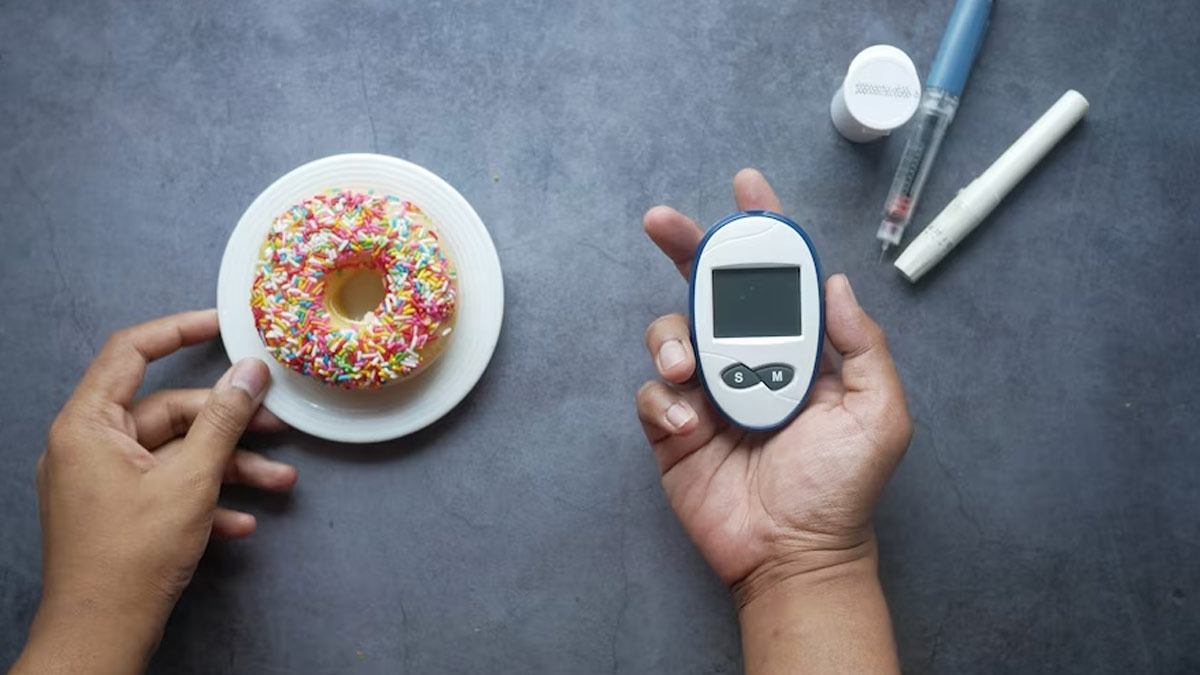

There are three main types of diabetes namely type 1, in which the pancreas produces little or no insulin, type 2, which affects the way the body processes blood sugar/glucose, and gestational diabetes, high blood sugar that affects pregnant women. If you have diabetes, it is important to watch your dietary habits and your food choices. Breakfast being the first meal of the day should be planned for effective diabetes management. Speaking with the OnlyMyHealth team, Dr Manoj Kutteri, Medical Director and CEO, Atmantan Wellness Centre, shares insights into the kind of food diabetes patients can have and should avoid.
Importance Of Breakfast For Everyone

Breakfast is the most important meal as it helps us keep energised throughout the day.
According to a study published in the Journal Nutrition and Metabolism, irregular breakfast consumption has been associated with abnormal metabolic outcomes, which refers to unhealthy changes in the body’s metabolic processes, leading to conditions like insulin resistance, dyslipidemia (abnormal lipid levels), impaired glucose tolerance, and metabolic syndrome and can increase the risk of developing chronic diseases, including type 2 diabetes, cardiovascular disorders, and obesity-related complications.
Also Read: The Top Five Recommended Carbohydrates For Diabetes Patients
What Diabetics Need To Know

You have high blood sugar when you have a fasting glucose level above 126 milligrams per deciliter (mg/dL) or a random glucose level exceeding 200 mg/dL. It could also be a sign of diabetes or impaired glucose tolerance.
When it comes to diabetes, diet plays a key role. A diabetes-friendly diet emphasises whole grains, lean proteins, healthy fats, and plenty of fruits and vegetables. Monitoring carbohydrate intake, portion sizes, and avoiding sugary foods is essential to help manage blood sugar levels effectively.
Therefore, Dr Kutteri says, “For people with diabetes, a healthy meal is essential to help control blood sugar levels. A nutritious breakfast should emphasise complex carbohydrates, fibre, lean protein, and healthy fats.”
Breakfast Foods For Diabetes Patients
Here are some examples of breakfast for diabetic patients and in general:
- For oatmeal lovers, steel-cut or rolled oats are better options since they have a lower Glycemic Index (GI) and offer more energy. Avoid flavoured quick oats because they frequently have additional sugars.
- Choose fruits with a low GI, such as citrus fruits, berries (strawberries, blueberries, and raspberries), apples, and pears. These offer essential minerals and natural sweetness without spiking blood sugar quickly.
- Greek yoghurt is a fantastic source of probiotics and protein, both of which are good for intestinal health. Yoghurts with flavours should be avoided because they frequently contain extra sugar.
- Include a tiny amount of soaked unsalted nuts or seeds, such as flaxseeds, chia seeds, almonds, or walnuts. These offer additional protein, fibre, and good fats.
- Include a source of protein, such as eggs, scrambled, boiled, or in an omelette with heaps of vegetables. Protein will help you feel fuller for longer and reduce sharp blood sugar swings.
- Include non-starchy veggies in your breakfast, such as spinach, tomatoes, bell peppers, or mushrooms. They contribute vitamins, fibre, and help make a meal more balanced.
- Optionally, choose a whole grain toast over refined white bread or a small portion of grain-free pancake if you feel hungry.
Foods Diabetics Should Avoid

Dr Kutteri recommends avoiding foods that are high on GI and loaded with sugar, especially for diabetes patients. These include:
- Highly processed sugary cereals that are loaded with sugar
- Sweet baked foods, such as doughnuts, pastries, muffins, and croissants
- White bread
- Sweetened and flavoured yoghurts
- Fruit juices which are concentrated with fructose
- Pancakes and waffles
- Sausages, bacon, and other processed meats that are high in saturated fats and sodium
- Jams, jellies, and spreads that are high in added sugars
- Energy drinks
Bottomline
If you’re a diabetic, you must watch what you consume in a day. Starting off with a healthy breakfast is key and therefore, indulge in complex carbohydrates, leafy green veggies, and good fibre sources that maintain overall health. Contact your healthcare professional for any additional information needed.
اكتشاف المزيد من ينبوع المعرفة
اشترك للحصول على أحدث التدوينات المرسلة إلى بريدك الإلكتروني.
